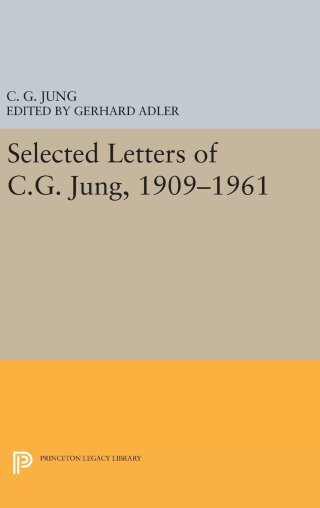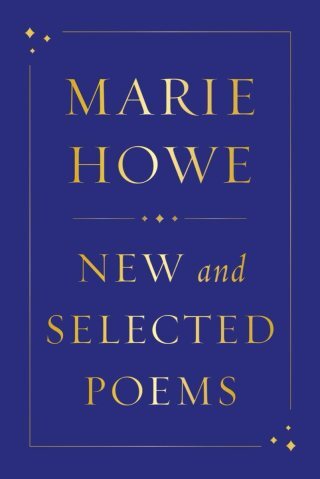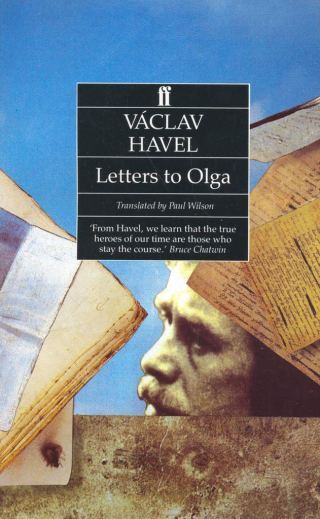Maria Popova's Blog, page 6
May 21, 2025
Is Peace Possible
Is Peace Possible?, originally published in 1957, is the second title in Marginalian Editions. Below is my foreword to the new edition as it appears in on its pages.
 How ungenerous our culture has been in portraying science as cold, unfeeling, and aloof from the human sphere. No — to live a life of science is to live so wonder-smitten by reality, by the majesty and mystery of nature, that the willful destruction of any fragment of it becomes unconscionable. It is impossible to study the building...
How ungenerous our culture has been in portraying science as cold, unfeeling, and aloof from the human sphere. No — to live a life of science is to live so wonder-smitten by reality, by the majesty and mystery of nature, that the willful destruction of any fragment of it becomes unconscionable. It is impossible to study the building...
May 18, 2025
The Pain and the God Within You: Carl Jung on the Relationship Between Psychological Suffering and Creativity
When AI first began colonizing language — which is still our best instrument for bridging the abyss between us, a container for thought and feeling that shapes the contents — I asked chatGPT to compose a poem about a solar eclipse in the style of Walt Whitman. It returned a ledger of cliches in rhymed couplets. Getting the form wrong — Whitman did not rhyme — seemed like an easy correction by a line of code. Getting poetry itself wrong was the interesting question, the question that gets at the ...
May 16, 2025
How Should You Live Your Life: Marie Howe’s Spare, Stunning Poem “The Maples”
“Judging whether life is or is not worth living amounts to answering the fundamental question of philosophy,” Albert Camus wrote in one of the most sobering opening pages in literature. So here you are, having answered affirmatively, consciously or not, now facing the second fundamental question that ripples out of the first: How shall you live?
Perhaps the sharpest, most recurrent shock of being alive is the realization that no one can give you a ready-made answer — not your parents or your tea...
May 15, 2025
Annie Dillard on Unselfconsciousness
 Walking through the white-walled gallery at the graduation show of one of New York’s most esteemed art schools, between beautiful young people with Instagram faces, I was struck to see project after project take up as its subject the least durable, most illusory aspect of human existence: the self. Where was the Iris Murdoch in these dawning artists’ lives to remind them that art, at its best, is “an occasion for unselfing”? And yet who could fault them: Not just their generation, but our entire...
Walking through the white-walled gallery at the graduation show of one of New York’s most esteemed art schools, between beautiful young people with Instagram faces, I was struck to see project after project take up as its subject the least durable, most illusory aspect of human existence: the self. Where was the Iris Murdoch in these dawning artists’ lives to remind them that art, at its best, is “an occasion for unselfing”? And yet who could fault them: Not just their generation, but our entire...
May 14, 2025
Isotopes, Vikings, Mars
We are perishable matter yearning for meaning, and time is both the matter and the meaning of our lives. “Time is a river that sweeps me along but I am the river,” Borges wrote in 1940. “Time is the substance I am made of.”
Around the same time, the chemist Willard Libby had a revolutionary insight that brought physics to the poetry of time, measurement to the mystery of this substance we are made of.
 Discus chronologicus — a German depiction of time from the early 1720s, included in
Cartograph...
Discus chronologicus — a German depiction of time from the early 1720s, included in
Cartograph...
May 11, 2025
Václav Havel on How to Hold Your Failure
Few things in life are more devastating than to give something your all and still fail. Not the “fail better” of startup culture, not the “fail forward” of self-help, not the failure that is childhood’s fulcrum of learning, not the inspired mistakes that propel creative risk, but simply that helpless and harrowing moment when you face the abyss between your will and your powers, your values and your choices, your ideal self and your real self. It is without redemption, such failure. But it need ...
Václav Havel on How to Live with Your Greatest Failure
Few things in life are more devastating than to give something your all and still fail. Not the “fail better” of startup culture, not the “fail forward” of self-help, not the failure that is childhood’s fulcrum of learning, not the inspired mistakes that propel creative risk, but simply that helpless and harrowing moment when you face the abyss between your will and your powers, your values and your choices, your ideal self and your real self. It is without redemption, such failure. But it need ...
May 7, 2025
Ocean Vuong on Anger
“To be an artist is a guarantee to your fellow humans that the wear and tear of living will not let you become a murderer,” Louise Bourgeois wrote in her diary as a young artist. “The poets (by which I mean all artists),” James Baldwin wrote in his late thirties, “are finally the only people who know the truth about us. Soldiers don’t. Statesmen don’t… Only poets.” And the truth about us, as I know it, is that how we love, how we give, and how we suffer is just about the sum of who we are. The t...
May 4, 2025
Hope Is the Thing with Feathers, and with Fangs: The Alchemy of Unrequited Love and the Story Behind Emily Dickinson’s Most Famous Poem
This essay is adapted from the nineteenth chapter of my book Figuring.
 In the first autumn of her thirties, Emily Dickinson wrote to her confidante and eventual editor Thomas Wentworth Higginson:
In the first autumn of her thirties, Emily Dickinson wrote to her confidante and eventual editor Thomas Wentworth Higginson:
I had a terror — since September — I could tell to none, and so I sing, as the Boy does by the Burying Ground — because I am afraid.
Not a “fright,” not a “shock,” but a terror. What lay behind this enormity implied by a woman who measured her words so meticulously? Generations of biographers have fille...
The Alchemy of Heartbreak and How to Live with Unrequited Love: The Story Behind Emily Dickinson’s “Hope Is the Thing with Feathers”
This essay is adapted from the nineteenth chapter of my book Figuring.
 In the first autumn of her thirties, Emily Dickinson wrote to her confidante and eventual editor Thomas Wentworth Higginson:
In the first autumn of her thirties, Emily Dickinson wrote to her confidante and eventual editor Thomas Wentworth Higginson:
I had a terror — since September — I could tell to none, and so I sing, as the Boy does by the Burying Ground — because I am afraid.
Not a “fright,” not a “shock,” but a terror. What lay behind this enormity implied by a woman who measured her words so meticulously? Generations of biographers have fille...






